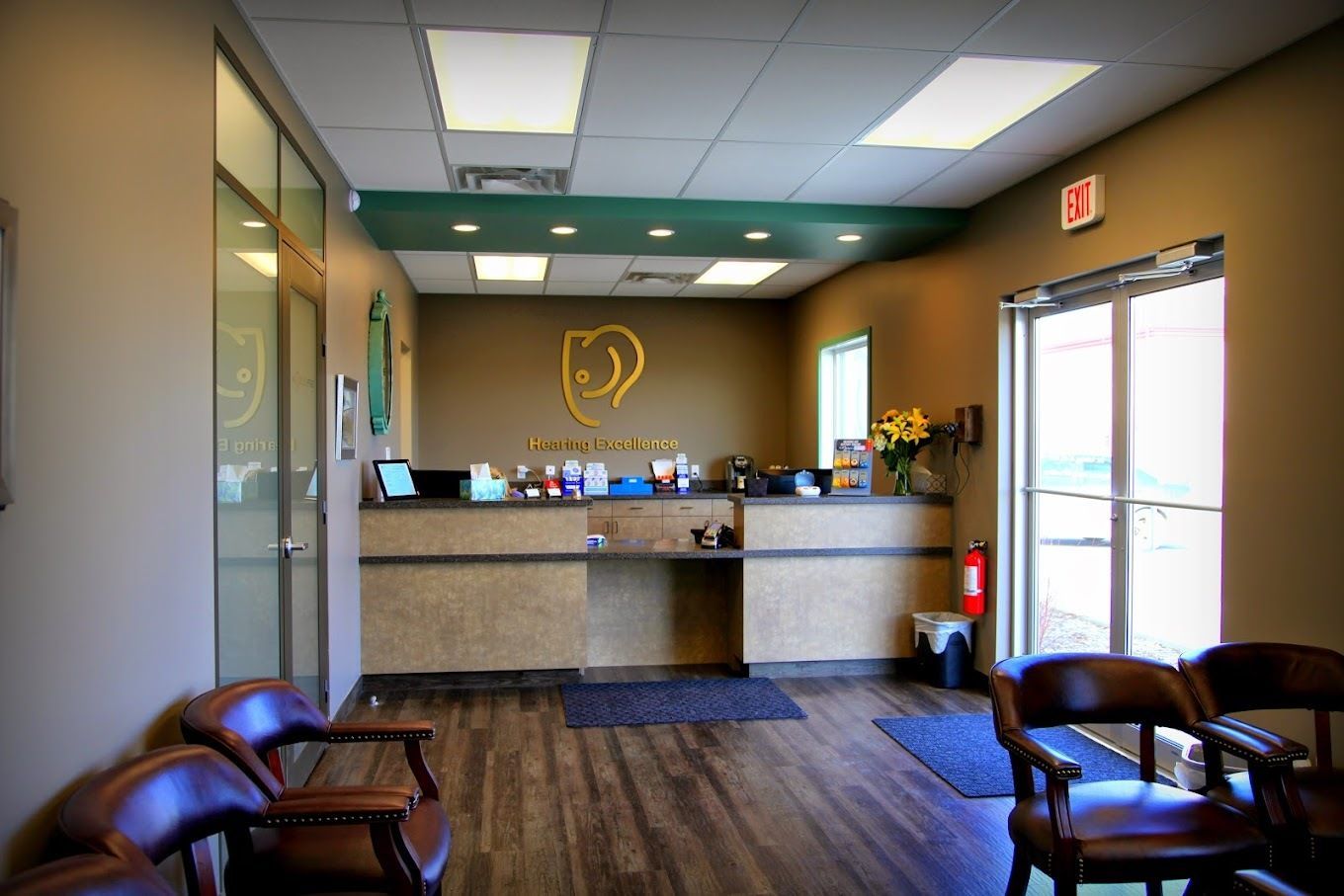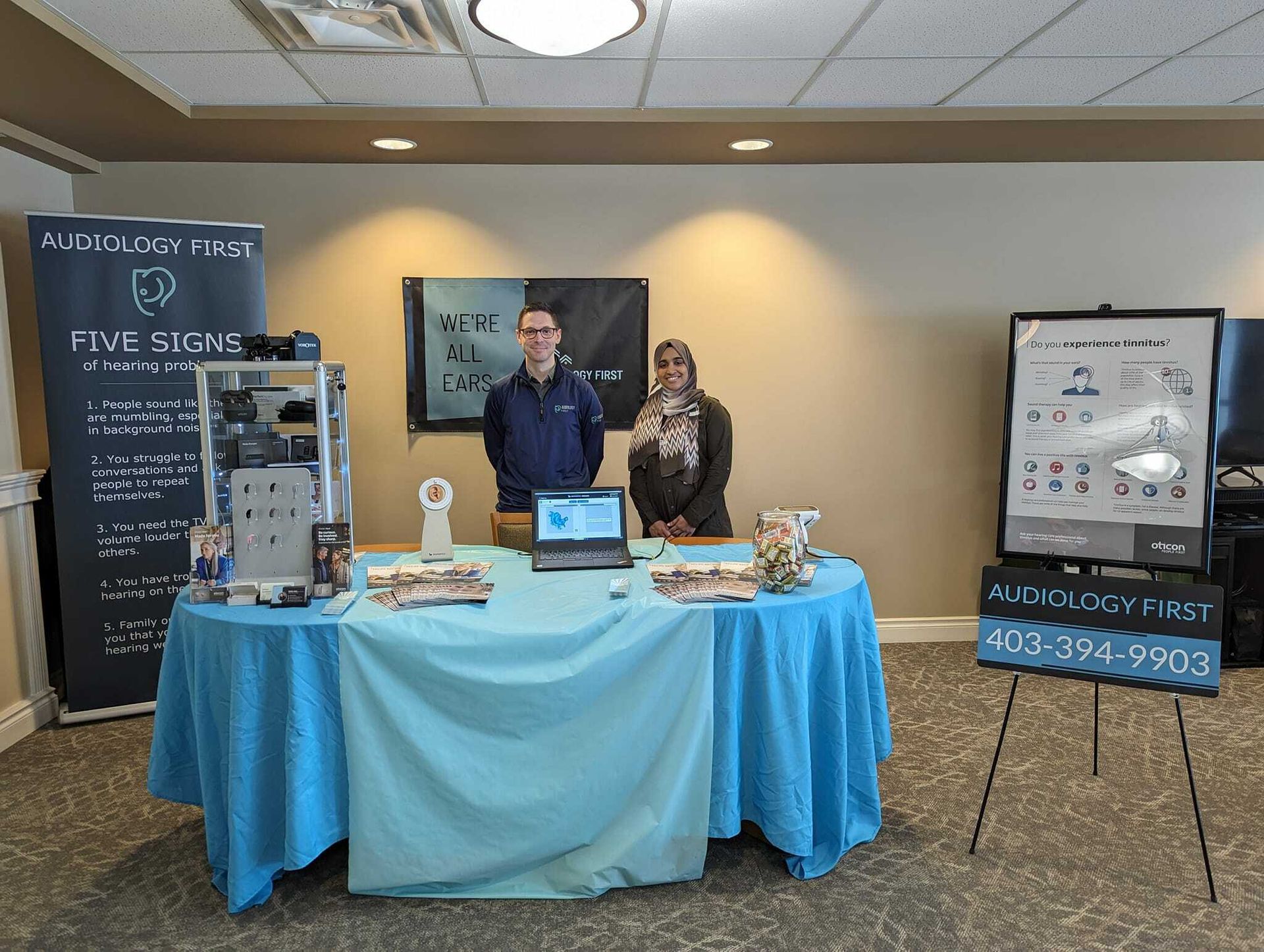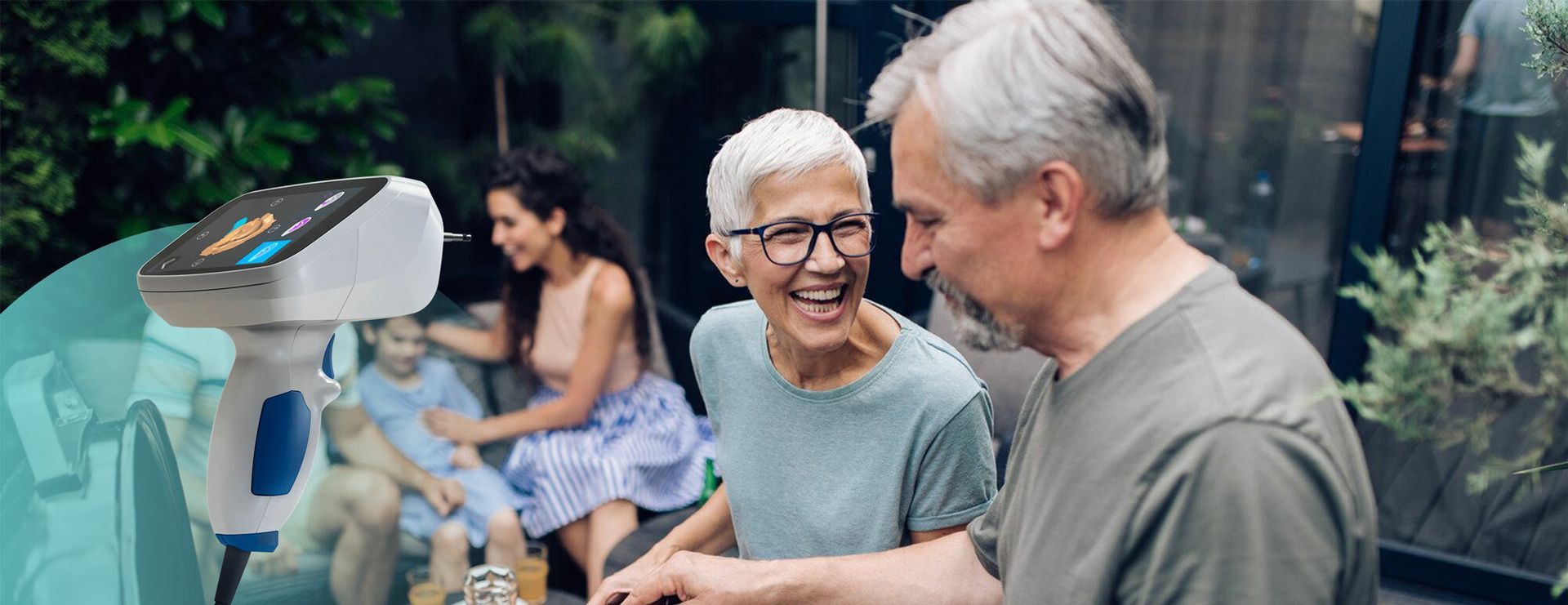Preparing for Your Appointment at Audiology First
First Time
If you are new to visiting a hearing care professional, there are a few things you may like to know before your appointment. Upon arrival, your hearing care professional will discuss your hearing history to better understand your needs and what factors have influenced your hearing. Following the get-to-know-you questions, you will be given a hearing exam, which may also include a listening experience with a hearing device for practice and to gauge the levels of your hearing loss.
Your hearing aid professional will take some time to examine your results and will then explain them to you in thorough and helpful detail. Depending on how your hearing is, your ear care professional may recommend hearing aids, and spend some time with you going over your options.
If this is your first visit, many people prefer to bring along a family member or friend to their appointment. This may help you feel more comfortable sharing your hearing experience.
Preparing
It’s helpful to know a bit about your hearing before arriving at your hearing assessment. So, how does hearing work exactly? It’s actually your brain that does the hearing. Our ears and brain work together. Your ears funnel information into the hearing system and your brain processes the information into meaningful sound.
Why it’s Good to Check Your Hearing
Now that you know a bit about how your hearing works, you should also know why it’s important to get it checked. When you have hearing loss, your ears lose their abilities to pick up certain sounds. This in turn forces your brain to work harder to “fill in the gaps” of what is being said. This requires a ton of mental resources that can leave you feeling exhausted and can even result in increased risk of dementia. (this will link to our other blog post)
Questions to Ask Yourself
Before you come in for your visit to Audiology First, think about what how much noise you may have been exposed to during your lifetime (loud concerts, working in construction, always wearing protective ear covering, etc.) so you can share that information with us.
We may also wish to know about previous hearing tests you may have had, ear infections, surgeries on the ears, head injuries, medications, your family history of hearing problems, dizziness and balance problems, ringing in the ears and a whole range of other questions relating to your hearing.
Also consider how your hearing seems on a day-to-day basis. Is your brain working harder than it should?
Here is a list of some of the things you should consider:
- Do I have difficulties hearing the television?
- Do I find that people mumble a lot?
- I find it difficult to hear speech in places such as restaurants and parties.
- It is difficult to determine where sounds are coming from.
- It is hard to concentrate when more than one person is speaking to me.
- I believe a hearing aid can change my quality of life.
Please contact us
if you have any further questions before your hearing assessment. It is important to us that you get the best possible results moving forward!

But First... A Little About Me Originally from India, I joined Audiology First in July 2023 as a Supervisee Audiologist. I hold a four-year Bachelor of Audiology and Speech-Language Pathology from Kerala University of Health Sciences, Kerala, India. I have the experience of working as a clinical audiologist in an ENT clinic in Kerala for three years, before I migrated to Canada, as a permanent resident in 2019 with my family. After completing the supervised practice required by the Alberta College of Audiologists and Speech-Language Pathologists (ACSLPA) under the supervision of Glenn Hole, I am now a registered member of ACSLPA. I joined the team as a permanent full-time clinician in November 2023. Working At Audiology First My experience at Audiology First has been so enriching and fulfilling as I pride in the fact that the clinic strives hard to provide its patients with the best possible and evidence-based intervention strategies. Be it obtaining a detailed case history or comprehensive hearing assessments, hearing aid fittings and follow-up appointments or cerumen management (that’s wax removal!) we make sure that the patients leave feeling more confident, listened to and with more knowledge about their hearing loss or hearing aids. How I Think About Hearing Care I believe that effective communication is essential for a fulfilling life, and I strive to empower my patients by providing personalized care and support. In my area of practice, I focus on understanding each patient’s unique needs and lifestyle. Whether it’s fitting hearing aids, offering rehabilitation strategies, or providing education on hearing health, my goal is to ensure that every patient can engage fully with the world around them. I’m excited to work with you and help you achieve the best possible hearing outcomes!







